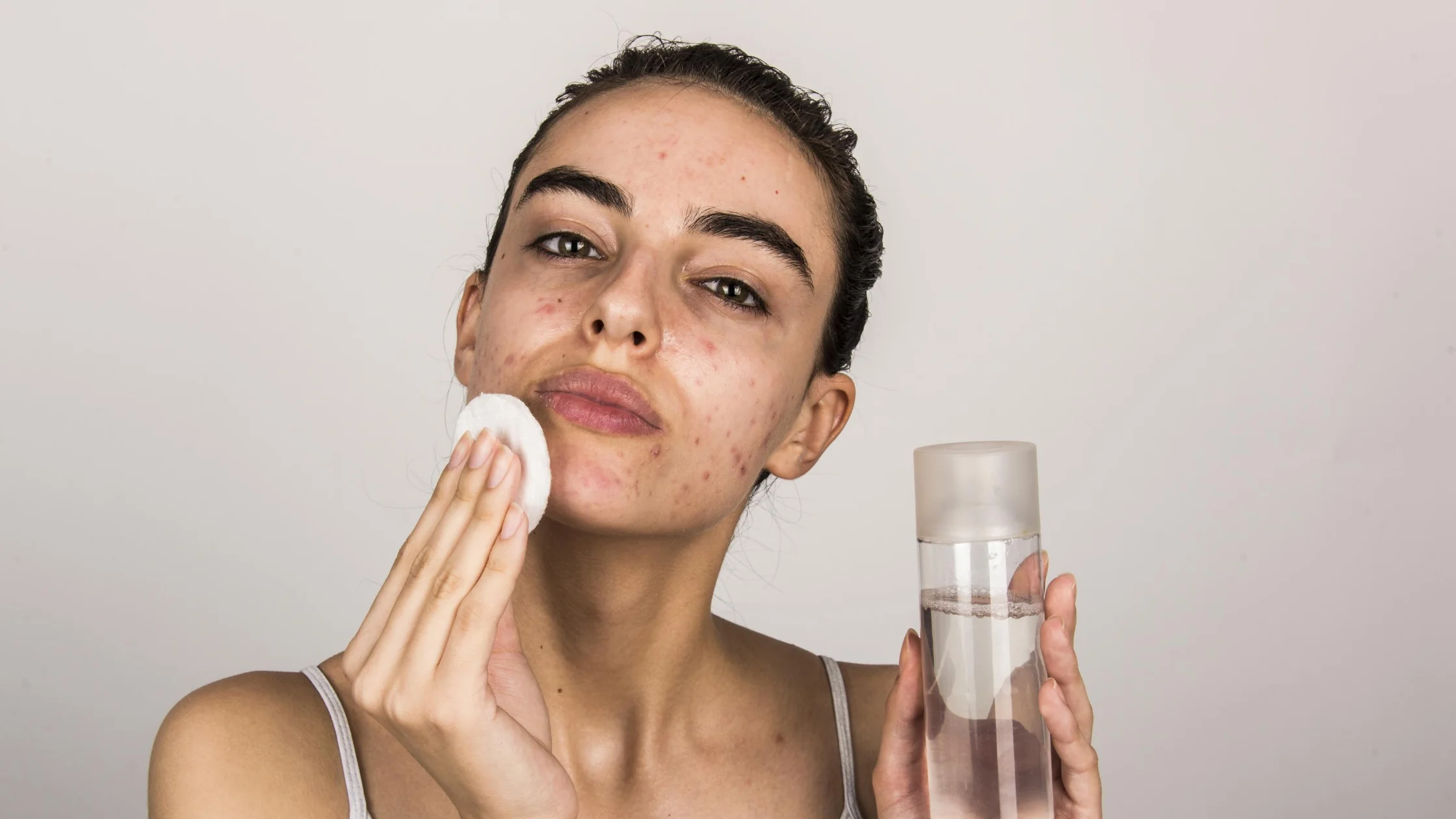Oily skin can be a frustrating issue, causing excess shine, greasiness, and even acne breakouts. But before you reach for harsh cleansers that strip away all the oil, it’s important to understand that our skin produces sebum, which is vital for its protection and health. In this guide, we’ll walk you through a dermatologist-recommended skincare routine for oily skin that will help you maintain a healthy balance and achieve a clear complexion.
1. Cleanse

The first step in your skincare routine is to cleanse your face at least twice a day. Use a gentle cleanser in the morning to remove the oils and dead skin cells that have accumulated overnight. In the evening, cleanse again to get rid of dirt and grime accumulated throughout the day.
If you’ve had a sweaty workout or a particularly dirty day, consider a double cleanse. Start with an oil-based cleanser to break down any stubborn impurities, followed by a water-based cleanser to ensure thorough cleaning. Look for cleansers specifically formulated for oily skin, such as PanOxyl Acne Foaming Wash or Neutrogena Ultra Gentle Daily Cleanser for Sensitive Skin.
2. Use a Toner
After cleansing, use a toner to complete the cleansing process and remove any remaining impurities. Choose an alcohol-free toner to avoid triggering your skin to produce more oil. Look for toners that contain salicylic acid, a beta hydroxy acid that helps control oil production. Avoid toners with exfoliating properties if you’re already using an exfoliating cleanser.
One highly recommended toner is Paula’s Choice SKIN PERFECTING 2% BHA Liquid Exfoliant, known for its ability to unclog pores and balance oil production. Another option is the First Aid Beauty Oil-Minimizing Toner with Salicylic Acid.
3. Treat Trouble Areas
If you’re prone to acne breakouts, it’s essential to target trouble areas with specific treatments. Benzoyl peroxide and sulfur are effective ingredients to combat acne. Apply these treatments after toning in the morning, but be cautious not to leave benzoyl peroxide on for too long, as it may cause irritation.
In the evening, incorporate retinol into your routine. Retinol helps keep pores clear, promotes collagen production, and reduces the appearance of fine lines and wrinkles. Look for products like La Roche-Posay Effaclar Duo Dual Action Acne Spot Treatment Cream for acne and CeraVe Resurfacing Retinol Serum for retinol treatment.
4. Moisturize
Contrary to popular belief, moisturizing is crucial for all skin types, including oily skin. Opt for lightweight, oil-free, and water-based moisturizers to avoid clogging your pores. Moisturizing immediately after washing your face while the skin is still damp allows for better absorption.
While some dermatologists argue that oily skin doesn’t always need daily moisturizing, it’s still important to moisturize in dry climates or during the winter months. Neutrogena Hydro Boost is a recommended option for its lightweight and non-comedogenic properties.
5. Apply SPF
Protecting your skin from the sun is a vital step in any skincare routine. Apply a broad-spectrum sunscreen with at least SPF 30 every morning, regardless of the weather. If your moisturizer doesn’t contain SPF, consider using Eucerin Sun Oil Control SPF 50 Face Sunscreen Lotion or ISDIN Eryfotona Actinica Zinc Oxide and 100% Mineral Sunscreen Broad Spectrum SPF 50+.
Remember, the best sunscreen is the one you’ll actually wear, so find a formula that suits your preferences and skin type.
FAQs
Q: How often should I cleanse my face if I have oily skin?
A: It’s recommended to cleanse your face twice a day, in the morning and evening. However, if you’ve had a particularly sweaty or dirty day, a double cleanse may be beneficial.
Q: Should I skip moisturizing if I have oily skin?
A: While some individuals with oily skin may not require daily moisturizing, it’s still essential to moisturize in certain situations, such as during dry weather or in a dry climate.
Q: Can I use exfoliating products if I have oily skin?
A: Exfoliating products can be beneficial for oily skin, but it’s important to avoid over-exfoliating, as it can lead to skin irritation and dryness. Be mindful of your skin’s sensitivity and adjust your exfoliation frequency accordingly.
Conclusion
Following a proper skincare routine is essential for managing oily skin and achieving a clear complexion. With the guidance of dermatologists, you can make informed choices about the products and steps that will best suit your skin’s needs. Remember to cleanse, tone, treat, moisturize, and protect your skin with SPF to maintain a healthy balance and achieve the results you desire.
For more insightful articles and expert beauty advice, visit Instant Global News.
